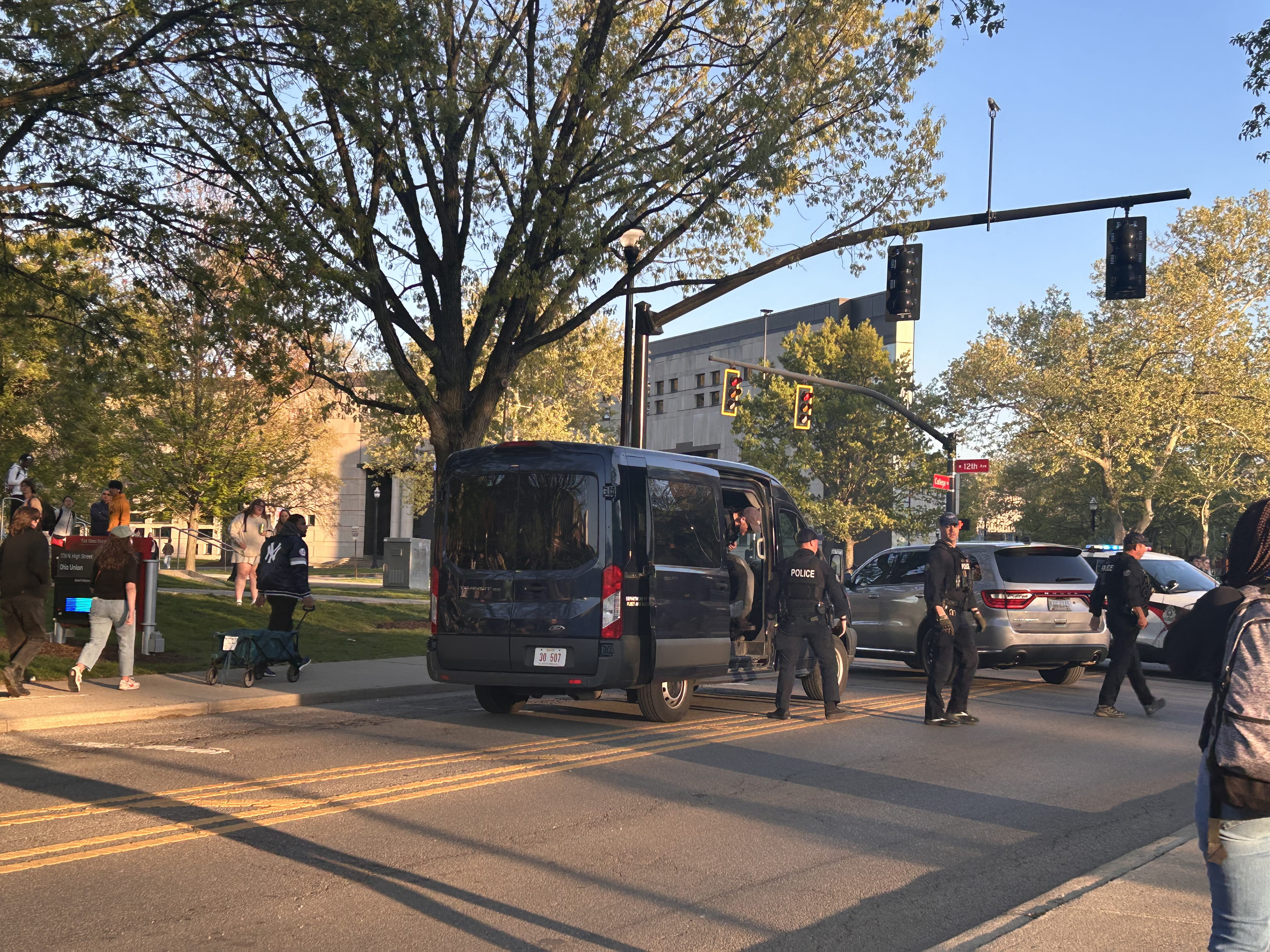
One of three arrest vans at the “All out for Gaza” protest on the South Oval Thursday. Credit: Nora Igelnik | Lantern Reporter
It’s been roughly 42 minutes since 15 state troopers arrived at the South Oval and told gathered protestors they had 15 minutes to vacate the scene before arrests would begin.
After over 350 students and community members formed a circle around an encampment around 5:30 p.m., Ohio State police warned protestors that setting up tents on the South Oval is prohibited — as stated in the university’s space rules — and that if they did not disperse in five minutes, they would be subject to arrest.
No arrests were made at the time, and no arrests have been made since the state troopers’ arrival on the scene at 7:32 p.m. Some individuals did, however, begin to disperse upon this announcement.
The event was a continuation of an encampment attempted Thursday morning, which quickly dissipated after Ohio State police arrested three people. At this evening’s event, the crowd locked arms in a tight circle surrounding five tents for over an hour, chanting, praying and singing as Ohio State police stood around them.
Given the arrests that morning, the protest was advertised as “high risk” by the organizations who held the protest. On Tuesday, two students were also arrested during a protest outside of Meiling Hall on charges of criminal trespassing.
In addition to barring tents that haven’t received “prior approval” from Facilities Operations and Development, the rules also state that noise is restricted Monday through Friday before 5:30 p.m., and after 10 p.m. The university defines restricted noise as disruptive of “the function of the University,” or sound that can be heard more than 50 feet from its source.
For “overnight events,” the rules state “outside habitation must not be the primary focus of the event.” When asked how the university defines “overnight events,” University spokesperson Ben Johnson said sunset.
This is a breaking story and will be updated as more information becomes available.
This story was updated at 9:07 p.m. to include what constitutes an “overnight event” per the university’s space rules.


